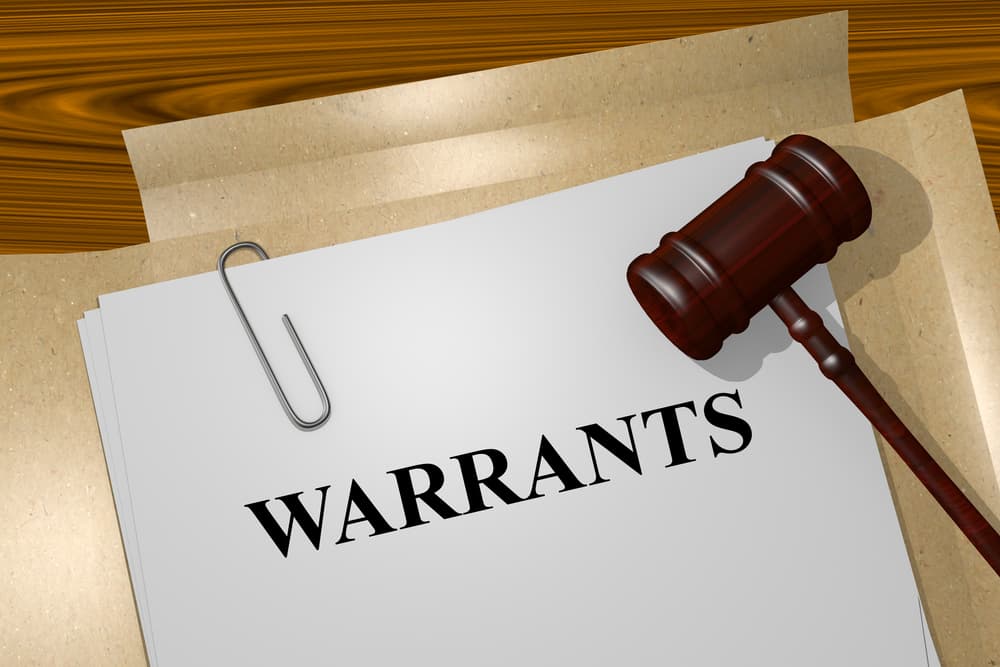In Texas criminal law, some people grapple with the long-term consequences of warrants and their impact on their personal and professional lives.
A frequently asked question is, "Can warrants be expuncted in Texas?"
This question and answer requires a thorough understanding of Texas law and the expungement process. Continue reading below to explore the ins and outs of warrant expunction in Texas so you can have the knowledge you need to understand your legal options. An Abilene expunction attorney can also help you to explore legal intricacies.
Understanding Warrants in Texas

Before delving into the expunction process, it's important to understand what warrants are and how they function in Texas. A warrant is a legal document issued by a judge or magistrate that authorizes law enforcement to take specific actions.
Texas courts may issue several types of warrants:
- Arrest warrants: Issued when there's probable cause to believe an individual has committed a crime.
- Search warrants: Authorize law enforcement to search a specific location for evidence related to a crime.
- Bench warrants: Issued when someone fails to appear in court or violates the terms of their probation or bond.
These warrants remain active until executed, recalled by the court, or expired (in some cases). An active warrant can significantly impact your life, potentially leading to unexpected arrests, employment difficulties, or housing application problems.
The Concept of Expunction in Texas
Expunction, often called expungement, allows individuals to remove certain arrests, charges, or convictions from their criminal records.
When a record is expunged, it's as if the event never occurred from a legal standpoint. This can be incredibly beneficial for those seeking to move past their involvement with the criminal justice system and start anew.
It's important to note that expunction is not available for all types of records and can be complex. In Texas, expunction is governed by Chapter 55 of the Texas Code of Criminal Procedure.
Can Warrants Be Expuncted in Texas?
The short answer to whether warrants can be expunged in Texas is: it depends.
Warrants themselves are not typically subject to expunction. However, the underlying charges or arrests that led to the warrant may qualify for expunction under certain circumstances.
Here are some scenarios where expunction might be possible:
1. Warrant Recalled and Charges Dismissed:
You may qualify for expunction if a warrant was issued for your arrest but later recalled and the charges dismissed. This situation often occurs when new evidence comes to light, or the prosecutor decides not to pursue the case.
2. Arrest Made, but No Charges Filed:
Suppose you were arrested based on a warrant, but no formal charges were ever filed. In that case, you might be able to have the arrest record expunged after a waiting period (usually 180 days for Class C misdemeanors and one year for Class A or B misdemeanors and felonies).
3. Charges Filed But Later Dismissed:
If charges were filed after your arrest on a warrant but later dismissed (and not as part of a plea bargain), you may qualify for expunction. There's typically a waiting period involved, which varies depending on the nature of the charges.
4. Acquittal After Trial:
If you were arrested on a warrant, went to trial, and were found not guilty, you're generally eligible for immediate expunction of the arrest and charge records.
5. Pardoned Offenses:
If you received a pardon for the offense that led to the warrant, you may qualify for expunction.
You cannot expunct active warrants. The warrant must be resolved, and the underlying case must meet specific criteria before expunction can be considered.
The Expunction Process in Texas

After confirming your eligibility for expunction under Texas law:
- Prepare and Submit Petition: File an expunction petition with the court in the county where the arrest or charges occurred. Include comprehensive information about your case and justification for expunction.
- Handle Filing Fees: Pay the required filing fees, which vary by county. Contact your local court for specific fee amounts.
- Attend Court Hearing: Be prepared to attend a scheduled hearing where a judge will evaluate your petition. You may need to answer questions or provide additional information.
- Receive Court Order: If approved, the judge will issue an expunction order directing relevant agencies to destroy or return records related to the expunged arrest or charge.
- Compliance: Follow up with agencies to confirm they have complied with the expunction order and removed records from their systems.
Challenges and Considerations
While expunction can clear your record, keep in mind several challenges and considerations:
- The Process: The expunction process in Texas can be complex and time-consuming. It often requires a thorough understanding of legal procedures and terminology.
- Strict Eligibility Requirements: Texas law sets forth specific criteria for expunction eligibility. Many cases do not qualify, even if they seem minor or were resolved favorably.
- Waiting Periods: Depending on the nature of the charges, you may need to wait a significant period before becoming eligible for expunction.
- Multiple Arrests or Charges: Multiple arrests or charges on your record can complicate the expunction process. Each incident may need to be addressed separately.
- Federal Charges: Texas expunction laws do not apply to federal charges. If your warrant or arrest was related to a federal offense, different rules and procedures apply.
- Professional Licenses: Even if you expunct your record, you may still need to disclose the arrest or charge when applying for specific professional licenses or security clearances.
Alternatives to Expunction
If you're not eligible for expunction, there may be other options to consider:
- Order of Nondisclosure: For certain offenses, particularly those resolved through deferred adjudication, you may qualify for an order of nondisclosure. This doesn't remove the record but seals it from public view.
- Sealing Juvenile Records: If the warrant or arrest occurred when you were a juvenile, different rules apply for sealing these records.
- Clemency or Pardon: In rare cases, seeking clemency or a pardon from the governor might be an option, especially for older convictions where you've demonstrated rehabilitation.
The Importance of Legal Representation:
Given everything involved in warrant resolution and the expunction process, seeking legal representation is highly advisable.
An experienced attorney can:
- Assess your eligibility for expunction accurately.
- Guide you through the intricacies of the legal process.
- Prepare and file all necessary documentation.
- Represent you in court hearings.
- Ensure that all relevant agencies comply with expunction orders.
- Advise you on alternative options if an expunction is not possible.
At the Law Offices of David M. White, we have extensive experience handling expunction cases and can provide the guidance you need to navigate this process.
Contact Law Offices of David M. White to Discuss Your Case Today
While you cannot directly expunge Texas warrants, the underlying arrests or charges that led to the warrant may qualify for expungement.
Expunging your record requires a relentless fight, but a clean slate brings limitless rewards.
At the Law Offices of David M. White, we're committed to helping Texans understand their legal rights and options regarding warrants and expunction. Our experienced team can guide you through the process, from determining your eligibility to filing the necessary paperwork and representing you in court.
If you have questions about your situation or need assistance with the expunction process, don't hesitate to reach out criminal defense law firm in Abilene, Texas for a free consultation.
